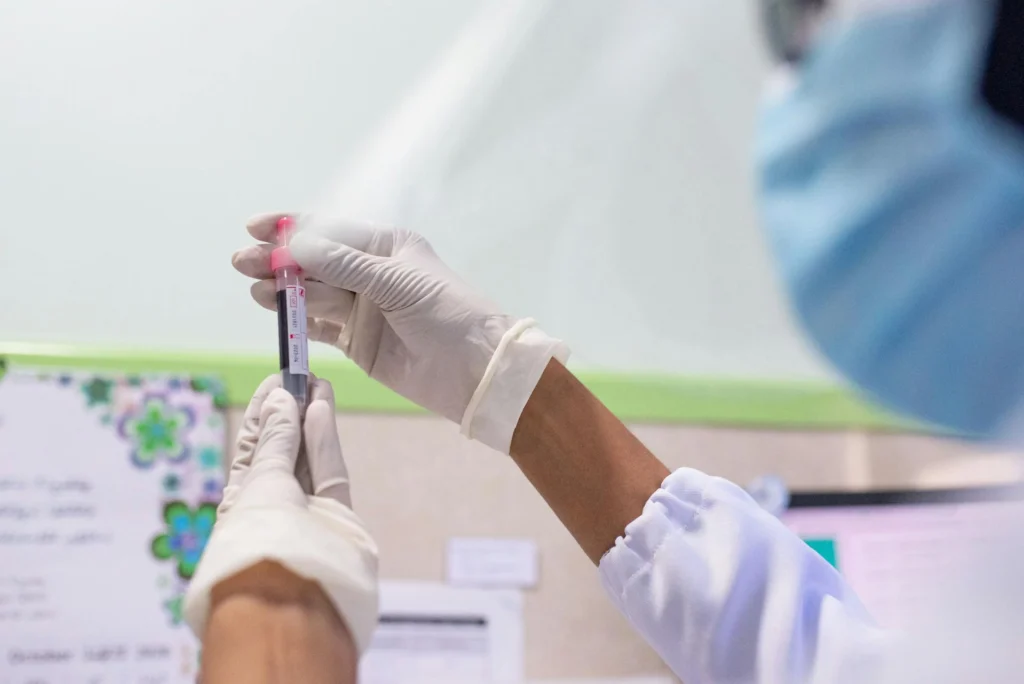Whether you’re worried about a recent hookup, starting a new relationship, or just due for a checkup, getting tested doesn’t have to be confusing.

If you want the most thorough approach, lab-based STI testing may be the way to go. You usually start by ordering a test online, then go to a certified lab near you — like Labcorp or Quest — where a technician will collect your sample. That might be a blood draw, urine sample, or swab, depending on the test.
Your sample is tested using highly accurate methods like NAAT (nucleic acid amplification testing), which is the gold standard for many STIs. You’ll usually get results within a few days through a secure online portal, and some services include a doctor consultation or a prescription if treatment is needed.
Lab-based testing is especially helpful if:
That said, it does mean going to a physical location, which isn’t ideal for everyone. Some people find it less private, or they simply don’t have time to visit a lab during business hours.
If you’d rather avoid a clinic altogether, at-home STI tests are a private and convenient alternative. You order a kit online, and it arrives in discreet packaging. Each kit includes everything you need to collect your sample — often a small amount of urine, a vaginal or throat swab, or a few drops of blood from a finger prick.
Once you send your sample back using the prepaid envelope, it goes to a certified lab — the same kinds used by doctors and hospitals. Most results are ready in just a few days, and many services offer follow-up support from a licensed physician, including prescriptions if needed.
At-home testing can be a good choice if:
These kits are not usually covered by insurance, but the upfront pricing is clear — no surprise bills or copays. For many people, that predictability is part of what makes home testing appealing.

A full panel that screens for the most common infections: chlamydia, gonorrhea, syphilis, HIV, hepatitis B & C, herpes 1 & 2, and sometimes trichomoniasis.
Some STIs can be detected within days, but others take 1–3 weeks. See our testing window guide to learn more.
Yes. Most lab or at-home tests include physician review and follow-up if needed — no office visit required.
Lab tests may be free with insurance. At-home kits range from $69–$150. We break down pricing on each provider’s page.
Yes. All legitimate providers follow HIPAA rules. Your results are only shared with you (and, if applicable, a prescribing physician).
Most online STI test services offer prescriptions or referrals if you test positive — especially for common infections like chlamydia or gonorrhea.
It depends. Clinics offer hands-on care and immediate consultation, but they’re less private and may have long waits. See pros and cons here ›
Same-day lab testing (if you live near a lab site) or expedited at-home kits with 2-day turnaround.
Yes. Many STIs are asymptomatic. Routine testing helps protect you and your partners.
Yes — but options are limited. Most OTC kits are for HIV or syphilis only. Compare them here ›
Use our Test Finder Tool or see our full comparison guides. We’ll help you match your needs with the right test.

© 2025 by Chekd Health